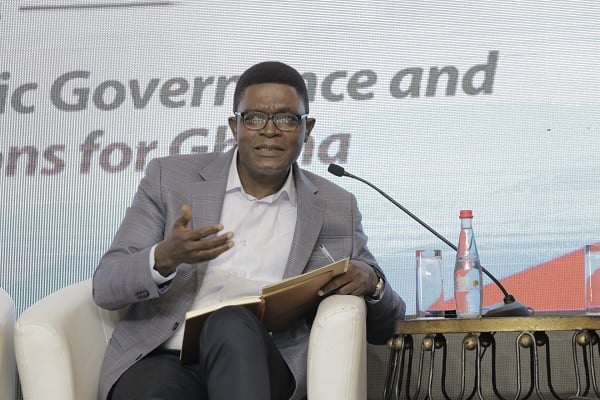The Executive Director of the Institute for Democratic Governance (IDEG), Dr. Emmanuel O. Akwetey, has commended President John Mahama for introducing what he describes as a significant change in the enforcement of public accountability rules in Ghana.
He believes the President’s approach to asset declaration has broken a long-standing cycle of neglect and impunity.
Speaking on Joy FM’s Newsfile on Saturday, May 10, 2025, Dr. Akwetey pointed to the President’s blend of moral authority and firm administrative action—including salary sanctions and threats of dismissal—as a bold and effective response to the persistent issue of non-compliance among public officials.
“For 32 years in the Fourth Republic, we’ve heard about asset declaration, but nothing happened,” Dr. Akwetey said. “What President Mahama has done, which needs to be recognised, is that the era of impunity is over. You have to declare, and there’s a timeline. He set the example, it was the first time we saw a president signing and publicly submitting his forms.”
Although Ghana’s Constitution permits officials six months after assuming office to declare their assets, President Mahama instituted a stricter March 31 deadline. Dr. Akwetey noted that this has sparked both compliance and conversation about the balance between constitutional flexibility and administrative discipline.
“Even if people haven’t breached the six-month legal window, they are now facing real consequences like loss of salary and the threat of dismissal. This is new,” he observed.
He recalled that under earlier administrations, efforts to enforce asset declaration laws were often stymied by social and cultural dynamics. Fear of exposure and its implications within extended family structures created hesitation among officials.
“They were afraid that, in an extended family system where nephews, nieces and others are involved in inheritance, declaring assets could put their lives at risk. That was the fear at the time,” he noted.
While some critics argue that the President may be overstepping legal boundaries, Dr. Akwetey believes the larger question is whether this firm stance can build a durable culture of accountability.
“Moral persuasion is important, but it turns out it’s not enough. The next stage is to see how many comply by the deadline and what sanctions follow. Could this become the culture we haven’t had in 32 years? That’s the real test,” he said.
He added that the President’s strategy appears measured and mindful of practical constraints, particularly the challenges that would come with mass dismissals.
“If you sacked all of them, half of them, it would take time to bring in new ministers. You’d have to go through vetting processes again. I think the way he’s started is subtle and gaining results,” he said.


